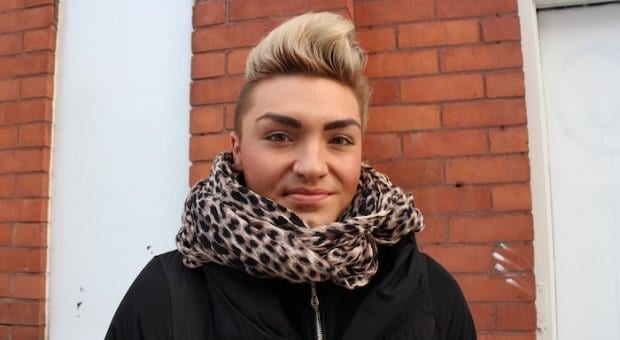Your gender doesn’t work for me, so you can’t work for me.
If a prospective employer refuses to hire you because of your age, race, disability, country of origin, gender, gender identity, gender expression or sexual orientation, that is discrimination under the Ontario Human Rights Code. We all know that, right? Yet Emmanuel Vien, a 20-year-old gay male esthetician, says prospective employers repeatedly refused to hire him based on his gender.
“I’ve had about a dozen interviews, literally, about more than a dozen actually,” Vien says. “At least six of them have given me that same excuse of ‘Well, we won’t hire you because you’re a male.’”
Vien says one prospective employer delivered a 20-minute lecture telling him there’s no future for a male esthetician, and if he wants to work in the beauty industry he should become a hairdresser. Others told him they couldn’t hire him because their clients wouldn’t be comfortable going to a man for esthetic services, Vien says.
Paul Champ, an Ottawa lawyer who specializes in human rights, is adamant that an employer can’t justify discrimination by blaming it on their clients’ perceived preferences.
“You can’t refuse to hire someone because of their race or gender or orientation because you claim that your customers wouldn’t like it,” Champ says. “That’s perpetuation of discrimination and is prohibited by the Human Rights Code.”
In March, Vien was featured in local newspapers talking about his effort to find work in his field while repeatedly facing the gender barrier. He received supportive messages on Facebook and now works as an esthetician at Metta Massage & Yoga Clinic in Westboro. Although he’s pleased with his new job and the public’s support, Vien says it’s important to recognize that discrimination persists despite there being laws against it.
Champ agrees. “We still have very gendered perceptions of who does what kind of jobs in our society,” he says. “Discriminatory attitudes can be very stubborn and can take a long time to dissipate. It sounds like [Vien] is experiencing that in his field.”
Bikini waxes were one reason some would-be employers gave for not wanting a male esthetician. While Vien agrees some women would prefer to get a Brazilian from a female esthetician, he says most female clients are perfectly comfortable with his services — all of them. Additionally, he points out there’s a lot more to the job than removing pubic hair, from facials, manicures and pedicures to eyebrow waxes and makeup application.
Employers have a duty to accommodate when a person is unable to perform a small part of their job due to a protected ground like gender, Champ says.
In addition to gender discrimination, Vien, who wears makeup and embraces what he calls “androgynous beauty,” says prospective employers made comments about his appearance. In one job interview, the would-be employer told him, “I am freaked out that you’re a male esthetician but wearing makeup.”
Another job interviewer said he wasn’t sure his clients would be comfortable with a male esthetician and made reference to Vien being gay.
“He kind of put his foot in his mouth and even was asking me things like, ‘Would you prefer to be called a woman?’” Vien says.
For Vien, wearing makeup is about feeling attractive and embracing his own personal style. He isn’t trans. Yet whether you’re trans, gender nonconforming, queer or working in an industry dominated by another gender, everyone is legally protected from discriminatory workplace policies, Champ says.
“It is acceptable for employers to have certain personal appearance standards or rules, but those rules cannot be discriminatory in any way,” he says. “It’s one thing for an employer to say we don’t want anyone wearing makeup or only minimal makeup, but if they say only men can’t wear makeup, then in my opinion, that would be discriminatory and contrary to the Human Rights Code.”
Bruno Racine, who owns salons and spas in Ottawa and Toronto, says working in the beauty industry requires looking good at work, but he adds that stylishness and gender nonconformity are hardly mutually exclusive.
“Makeup for men is more and more popular,” Racine says. “As long as everything is done to taste and it looks good, then I have no problem with it.”
Champ applauds people breaking barriers but says that unfortunately, sometimes being circumspect during job interviews is a good idea.
“It’s sad to say, but living in the real world, probably what I’d recommend to someone is to [present] somewhat more conventionally when they’re going for a job interview, and once they are hired and start working, then they can start [presenting] in the manner that they feel more comfortable,” he says.
Employers can be skilled at finding seemingly valid reasons for not hiring someone they’re rejecting based on discriminatory grounds, Champ says.


 Why you can trust Xtra
Why you can trust Xtra


